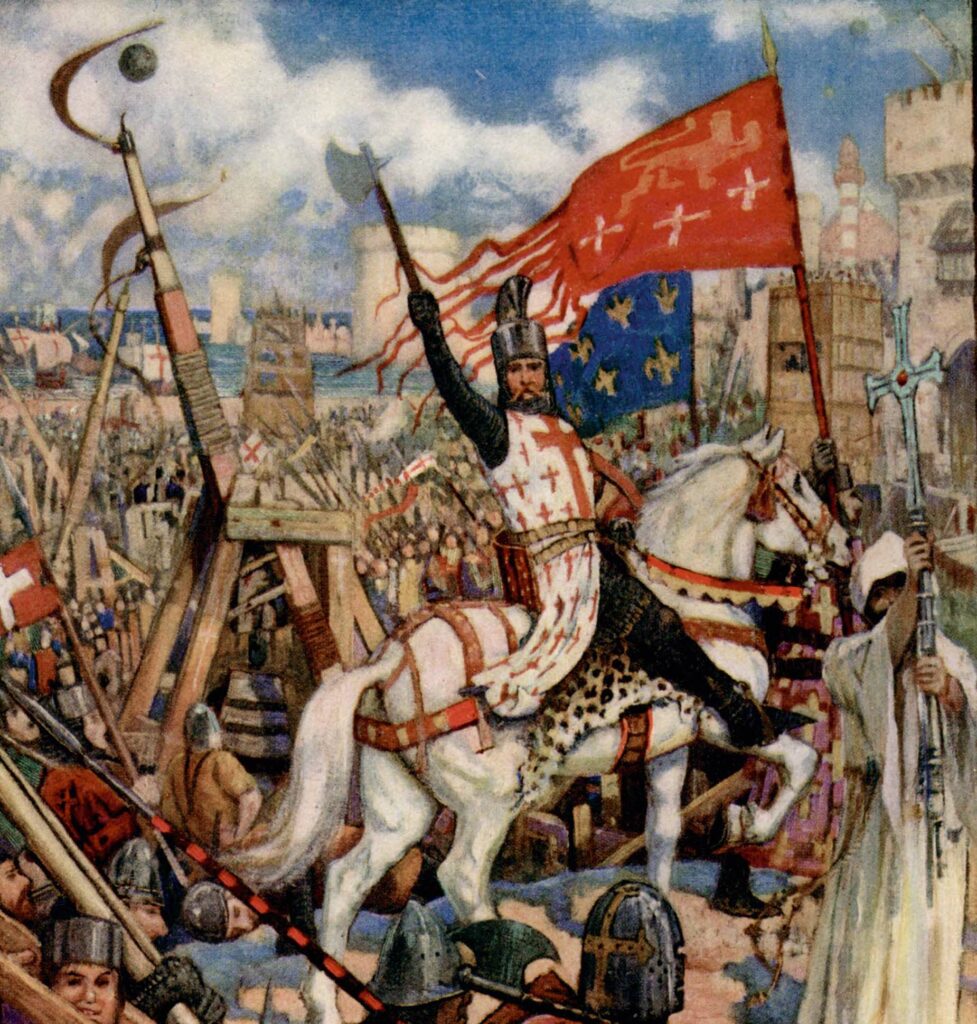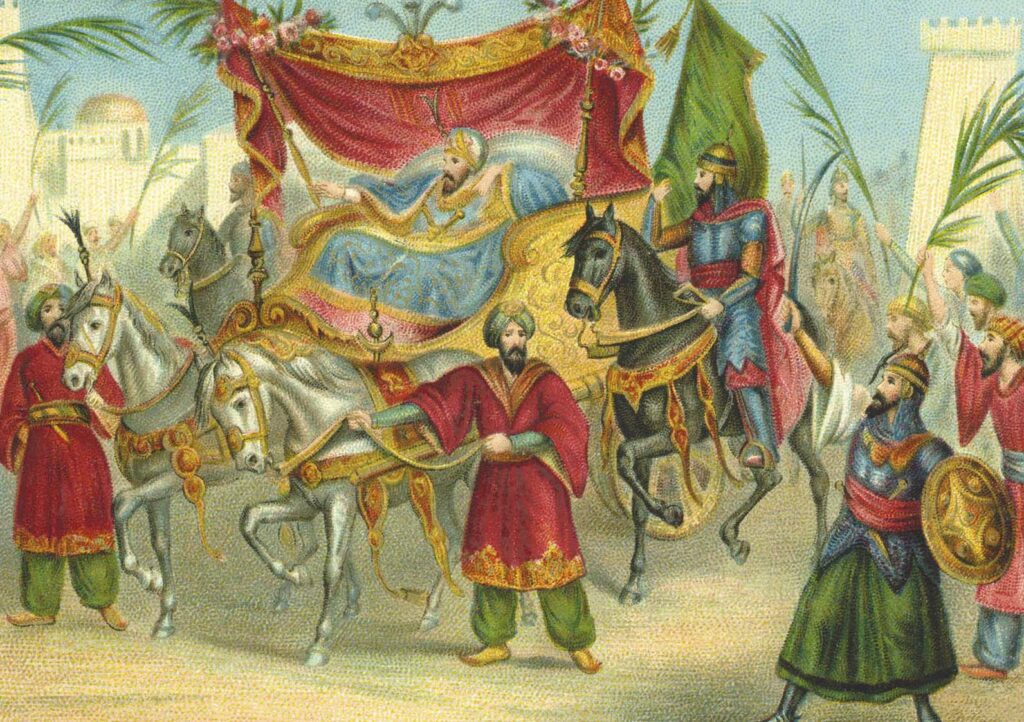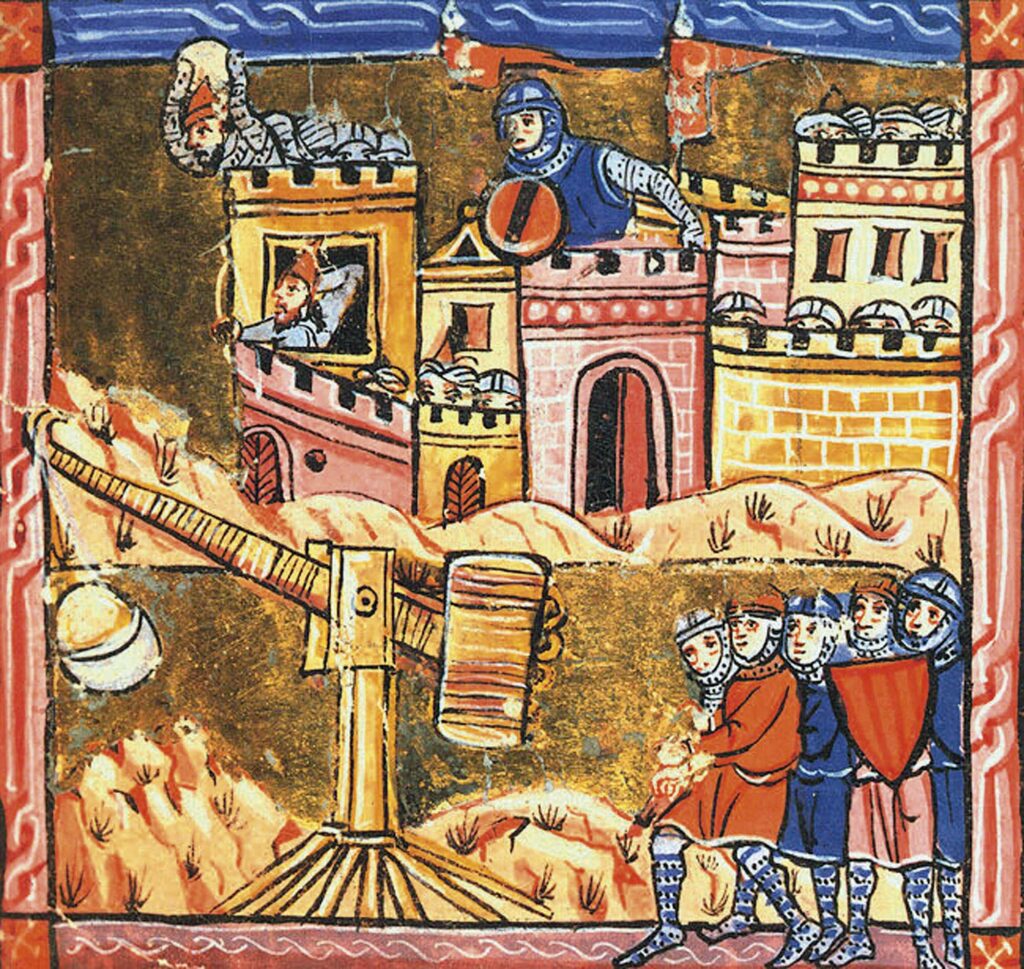WHAT IF…
What if… Richard the Lionheart had recaptured Jerusalem?
Nige Tassell and Professor Rebecca Rist consider the consequences for history had the Third Crusade returned the Holy City to Christian control

In January 1192, Richard the Lionheart – aka Richard I of England – advanced with his men towards Jerusalem, the holy city taken by Saladin, the founder of the Ayyubid dynasty, nearly five years earlier. Richard was by now the de facto leader of the Third Crusade, during which he had already enjoyed significant success, taking the strategically important cities of Acre and Jaffa the previous year.
He and his forces reached the village of Bayt Nuba, just a dozen miles from Jerusalem’s city walls. With Muslim morale low, re-establishing Christian control could have been within his grasp, but instead Richard retreated to spend the rest of the winter on the coast at the port of Ascalon. In the short term, he was cautious about both the poor weather conditions and the strength of
IN CONTEXT
The Third Crusade – also known as the Kings’ Crusade as its spearhead was formed by Richard I of England, Philip II of France and the Holy Roman Emperor Frederick I – was launched in May 1189 in order to reverse the territorial gains of the Ayyubid sultan Saladin. The crusaders were successful in capturing key sites and cities, but failed to take Jerusalem under Christian control. This wasn’t because their attack on the Holy City was unsuccessful, but rather the result of Richard choosing to retreat instead when very close to the city walls, preferring to consolidate the crusade’s successes with the signing of the Treaty of Jaffa in 1192. his men, while also being in two minds about his long-term ability to hold on to Jerusalem. Instead, Richard opted for a settlement. The Treaty of Jaffa was signed with Saladin the following autumn, keeping the city under Muslim control but allowing access for Christian traders and pilgrims.

A taxing situation
Had Richard chosen to recapture Jerusalem, he would surely have faced a renewed campaign from Saladin to recapture it for himself, as Rebecca Rist, professor of medieval history at the University of Reading, observes. “Losing the holy city of Jerusalem to the crusaders would have undoubtedly tarnished Saladin’s renowned reputation in the Muslim world, but he still had great military might, despite the significant losses at Acre and Jaffa, whereas much of Richard’s army had dissipated and gone back to Acre by October 1191. Saladin would have needed popular will, political ability and organisational capacity to retake Jerusalem – and it appears he had all three. His bouts of ill health and his lack of ready cash were his only weaknesses.”
Had Richard attacked, taken and held Jerusalem, there may well have been consequences back home in England, where his brother John was conspiring with Philip II of France to take Richard’s crown. As it was, Philip was already threatening his lands in northern France. This situation, along with the strain on resources that holding Jerusalem would have created, were further factors that influenced his decision to demur. “There were never enough crusaders in the Holy Land,” Professor Rist explains. “People tended to go back to the west after they had fulfilled their vows. And crusading was an expensive business. Richard would have needed the Church to set up new crusading taxes – as Pope Innocent III did from 1213 onwards for the Fifth Crusade – hence he might have had to raise another ‘Saladin Tithe’ which, in 1188, had been unpopular.”
“The huge upsurge in morale would have acted as an enormous catalyst for pilgrimage”

Had Richard chosen to retake Jerusalem, what would have been the consequences for Christianity in the region? “Catholics would have benefitted because priests would have remained in the city and been maintained in the churches there. However, this was to be agreed in the Treaty of Jaffa anyway. The Greek Orthodox would have fared less well because the imposition of the Latin rite would have meant that Catholic bishops would have been appointed rather than Orthodox bishops.
“The peace treaty did allow Christian traders and pilgrims access to Jerusalem, but if Richard had taken the city, arguably more of them would have flocked there as news of the crusaders’ capture would have reached the west and the huge upsurge in morale would have acted as an enormous catalyst for trade and pilgrimage.”
Freeing the holy places for pilgrims was a main aim of the crusaders, rather than the promotion of Christian ideals across the region. “Crusades to the near east were not launched to spread Christianity. If Muslims converted, that was considered well and good, but conversion of Muslims was never a specific aim of the papacy in its call for near eastern crusades.”
Slowing ambitions
Richard may have turned back 12 miles from Jerusalem, but the Fourth Crusade, launched 10 years later in 1202, set the recapture of the city as its primary goal. So, without Richard’s retreat, this Fourth Crusade may never have happened – or, at least, it would have taken a different form. And, as Professor Rist concludes, this subsequent crusade would make a significant impact on world history.
“As a result of the Fourth Crusade, the former Byzantine empire was split into, on the one hand, the new Latin empire based in Constantinople, and, on the other, the Byzantine successor states. Had the Byzantine empire remained intact, there would have been a stronger bulwark against the expansion of Muslim groups such as the Ayyubids and Mamluks, with the Greek Orthodox Church able to exert much greater spiritual authority in the near east.
“A stronger Byzantium might not have thwarted the rise of the Ottoman Turks, but it could have slowed down their territorial ambitions, particularly in a westward direction. The Byzantines did reconquer Constantinople in 1261. However, if Constantinople had not been so weakened by the Fourth
Crusade, it might have been better able to withstand Ottoman conquest, the Eastern Orthodox Church would have remained a more powerful spiritual force in the near east, and Ottoman expansion might have been contained. When the Ottomans conquered Constantinople in 1453, the Byzantine empire came to an end.”
DID YOU KNOW?
THE LION’S TONGUE
Richard the Lionheart may not have been able to speak English. Instead, he likely spoke French and Occitan – the language of Aquitaine, where he lived as an adult. In fact, he probably only spent around six months in England during his 10-year reign.
LISTEN
Professor Rebecca Rist answers listeners’ questions about the Crusades in an episode of the HistoryExtra podcast from 2020: historyextra.com/crusades-everything-pod